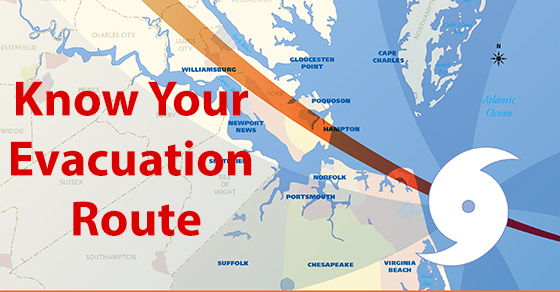If you live anywhere near the Atlantic or Gulf coasts you could be susceptible to the impacts of a hurricane. The Atlantic hurricane season officially runs from June 1 to November 30 although hurricanes can occur outside that time period. Outside the hurricane season the impacts of a strong nor’easter can be just as devastating. Are you prepared if a large storm is headed your way? Do you know what to do? The National Weather Service and theNational Hurricane Center are valuable resources for everything hurricane related. They offer some valuable checklists for hurricane season.
Before Hurricane Season:
- Determine safe evacuation routes inland
- Learn locations of official shelters
- Check emergency equipment, such as flashlights, generators and battery-powered equipment such as cell phones and your NOAA Weather Radio
- Buy food that will keep and store drinking water
- Buy plywood or other material to protect your home if you don’t already have it
- Trim trees and shrubbery so branches don’t fly into your home
- Clear clogged rain gutters and downspouts
- Decide where to move your boat
- Review your insurance policy
- Find pet-friendly hotels on your evacuation route
Just Before an Impending Storm:
- Listen frequently to radio, TV or NOAA Weather Radio All Hazards for official bulletins of the storm’s progress
- Fuel and service family vehicles
- Inspect and secure mobile home tie downs
- Ensure you have extra cash on hand
- Prepare to cover all windows and doors with shutters or other shielding materials
- Check batteries and stock up on canned food, first aid supplies, drinking water and medications
- Bring in light-weight objects such as garbage cans, garden tools, toys and lawn furniture
- Closely monitor radio, TV or NOAA Weather Radio All Hazards for official bulletins
- Close storm shutters
- Follow instructions issued by local officials. Leave immediately if ordered!
- Stay with friends or relatives at a low-rise inland hotel or at a designated public shelter outside the flood zone
- DO NOT stay in a mobile or manufactured home
- Notify neighbors and a family member outside of the warned area of your evacuation plans
- Take pets with you if possible, but remember, most public shelters do not allow pets other than those used by used by people with disabilities. Identify pet-friendly hotels along your evacuation route.
Develop a Family Emergency Plan
Be prepared for the unexpected. What if you and your family aren’t together when a storm hits? How will you find each other? Will you know if your children or parents are safe? You may be forced to evacuate or you may be confined to your home. Do you know what to do if water, gas, electricity or phone services are shut off? If you get caught in the impact zone of a major hurricane you may not have electricity for weeks. When a storm hits things will be chaotic. Some planning ahead of time will help alleviate some of the stress. Gather contact information like the local phone number for Red Cross and FEMA. Make copies of important documents such as insurance policies, mortgage, bank account information, wills, etc. and keep them in a readily available location. Know the suggested evacuation routes and review them for yourself. Always have a Plan B (Plan C and D don’t hurt either). Develop an emergency plan with your family and if it needs to be implemented, follow it as planned. Part of your plan should include an emergency supply kit.
An Emergency Supplies Kit Should Include:
- At least a 3-day supply of water (one gallon per person, per day)
- At least a 3-day supply of non-perishable food
- At least, one change of clothing and shoes per person
- One blanket or sleeping bag per person
- Extra set of car keys Credit card and cash
- Special items for infant, elderly or disabled family members
- Prescription and non-prescription medicines
- First-aid kit
- Battery-powered NOAA Weather Radio and a portable radio
- Emergency tools
- Flashlight, extra batteries
Hurricanes and major storms can be concerning, but planning ahead will do the most to minimize the chaos that follows. Being prepared provides a calming effect because you know you have done everything you can to keep your family safe during a time of crisis. Following the guidance provided will go a long way towards reducing the impact to you and your loved ones.
To get more information on property management go tohttp://www.tidewater.realpropertymgt.com.
#HurricaneSeason #RentalProperty #RealPropertyManagementTidewater
We are pledged to the letter and spirit of U.S. policy for the achievement of equal housing opportunity throughout the Nation. See Equal Housing Opportunity Statement for more information.



